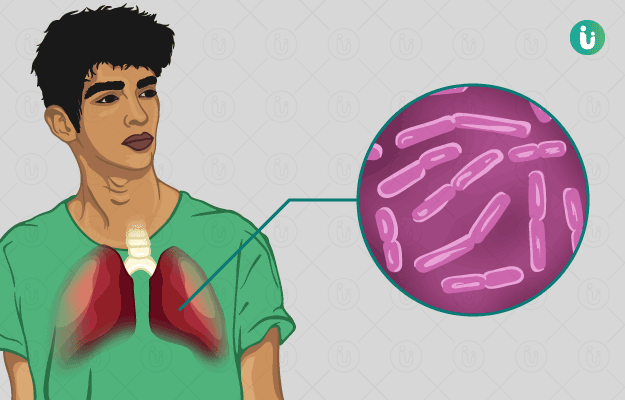What are chest infections?
Infections of the chest are typically lower respiratory tract infections that effects lungs and bronchi. These infections mainly include bronchitis, which is an inflammation of the larger airways in the lungs, and pneumonia, which is an inflammation of the air sacs in the lungs. All chest infections are primarily characterised by a persistent cough, cold and fever. Chest infections are predicted to be the most common type of infections globally by the year 2030.
What are its main signs and symptoms?
Although a persistent cough is the most common symptom experienced in chest infections, some other signs and symptoms may also be seen such as:
- Persistent wet cough
- Green or yellow mucus (phlegm)
- Breathlessness
- Fever
- Pain or discomfort in the chest while coughing
- Fatigue
- Muscle pain
Coughing and breathlessness can be confused with asthma. Chest infections can make asthma symptoms worse.
What are its main causes?
Chest infections can be due to a number of causes. Small children, smokers and pregnant women are at a higher risk of chest infection. Some conditions like autoimmune disorders and interstitial lung disease may also lead to recurrent chest infections. Let’s take a look at the commonly observed causes of chest infection.
- Persistent cold and flu: These can lead to inflammation and infection in the airways.
- Frequent exposure to polluted air and dust: Pollutants of any kinds can irritate the lining of the airways.
- Infection due to microorganisms: Bronchitis is commonly caused by viruses like rhinovirus or influenza virus and, in some rare cases, by bacteria. Pneumonia is typically caused by a bacterial infection; however, viruses, mycoplasma and fungi can also cause pneumonia.
How is it diagnosed and treated?
Chest examination using a stethoscope helps in diagnosing chest infections. Following are the tests that follow the examination of the chest, so that the line of treatment can be finalised:
- X-ray of the chest
- Examination of the sputum
- Pulmonary function tests using a spirometer
- Pulse oximetry (to check oxygen levels in the blood)
Bronchitis may be acute or sometimes chronic. Bronchitis is commonly treated using the following:
- Inhaled steroids using nebulisers
- Oral steroids
- Oral interleukin inhibitors
- Bronchodilators
Patients suffering from pneumonia are treated using higher doses of antibiotics that are effective against the causative bacteria. Physicians typically prescribe macrolide or beta-lactam antibiotics for the pneumonia with antipyretics (fever-reducing medicines) for fever. Additionally, for both types of chest infections, the following self-care measures are suggested:
- Drink plenty of water
- Take rest
- Avoid smoking
- Use nasal decongestants
Although a few cases may worsen or require oxygen support, chest infections can usually be controlled with early detection and timely treatment.

 Doctors for Chest Infections
Doctors for Chest Infections  OTC Medicines for Chest Infections
OTC Medicines for Chest Infections



















